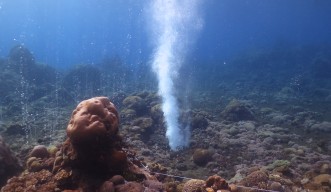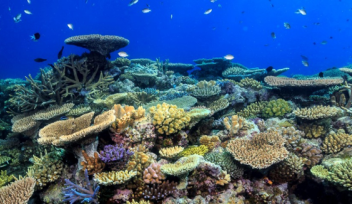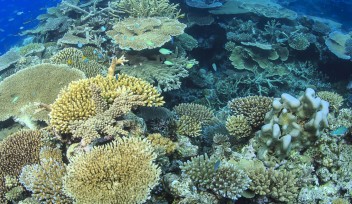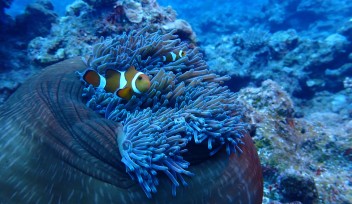Investigating the impacts of ocean acidification using natural analogues

Researchers in the Marine Climate Change Unit at the Okinawa Institute of Science and Technology Graduate University (OIST), alongside those from the University of Tsukuba, the University of Ryukyus, the University of Palermo in Italy, and the French Institute for Research and Development (IRD) in New Caledonia, have been awarded core-to-core funding by the Japan Society for the Promotion of Science to form the International CO2 & Natural Analogues Network (ICONA).
This network aims to create resources on using natural analogues to understand how ocean acidification will impact marine ecosystems. The funding goes from 2021 to 2026.
Prof. Timothy Ravasi, Principle Investigator in the Marine Climate Change Unit, explained how natural analogues mimic future environment. “These are volcanoes, tidal lagoons, or underwater vents that result in higher than average CO2 levels being present in the surrounding ocean. We can use these environments to investigate what the marine ecosystems might look like in the future given the projections for ocean acidification.”
The sites that the Marine Climate Change Unit focus on are in Papua New Guinea, New Caledonia, Italy, and New Zealand.
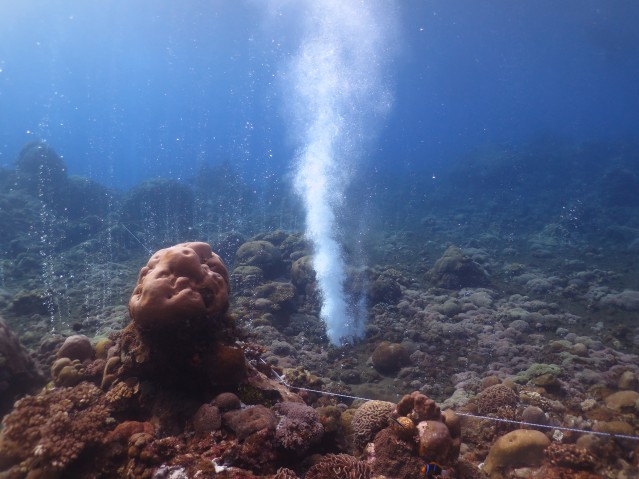
One of the main goals of this international collaboration is to standardize the research. This would involve creating a minimum set of requirements that every researcher who uses natural analogues would need to adopt. It would ensure consistency with measuring the acidification and monitoring the surrounding ecosystem and thus allow research from across the world to be compared.
Prof. Ravasi emphasized that this form of standardization was not new. “Twenty years ago, when the human genome project started, everyone just jumped in. Scientists used a whole range of different tools and resources. In the end, it was very difficult to compare between research, which meant that time and funding was wasted. In the end, the researchers adopted a set of minimum requirements. Now we know that it’s better to standardize immediately so that research can be compared.”
Alongside this standardization, Prof. Ravasi intends on using the funding for international travel to the sites and to generate workshops aimed at researchers at other universities both within Japan and overseas on how natural analogues can be used for a wide range of global change science.
“This is driven by Japanese universities and paid for by the Japanese Government,” explained Prof. Ravasi. “Japan is the first country to value natural analogues as a research tool. We hope that we can inspire researchers overseas to also realize how useful these sites can be.”
Header image by J.M. Bore.
Research Unit
For press enquiries:
Press Inquiry Form










